
The Akiba and Shimura crime families run the streets of “K City”. With the construction of new buildings and new factories underway, the city has sprouted into a boomtown and business is good. Two of the most infamous mobs of Tokyo want a piece of the pie. As out-of-town yakuza flood the city overnight, the crime boss of the Akiba family, Tezuka (Joe Shishido), is released from prison after a five year sentence. He does not like the "change" he sees.
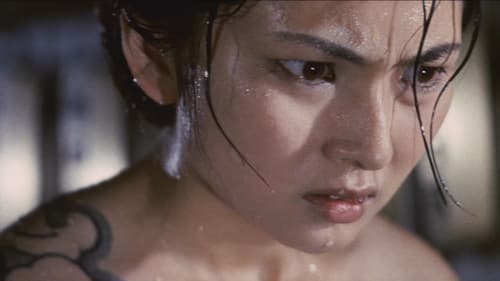
Akemi é um líder dos dragões tatuados do clã Tachibana Yakuza. Em um duelo com uma gangue rival, Akemi corta os olhos de um oponente e um gato preto aparece, para lamber o sangue que jorra da ferida. O gato e a vítima perseguem a gangue de Akemi para se vingarem, deixando um rastro de meninas Yakuza mortas, suas tatuagens de dragões esfoladas de seus corpos.

Follows the struggles of a yakuza wife after his husband gets hurt in a knife fight.
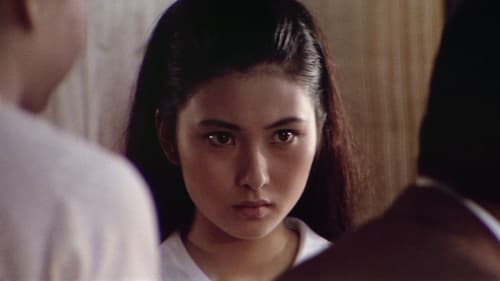
Two years before they collaborated on the immortal Stray Cat Rock series, director Yasuharu Hasebe and soon-to-be-superstar Meiko Kaji teamed up for this potent gangster flick that also stars the great Joe Shishido (Branded to Kill) and Akira Kobayashi, who would shortly thereafter star in Kinji Fukasaku's epic yakuza series Battles Without Honor and Humanity. Emerging from a stint in prison, yakuza lieutenant Sumukawa (Kobayashi) discovers that his gang has disintegrated while he was in the pen. An ambitious type, he quickly hooks up with another gang (led by Shishido) who promise him a prominent position if he helps them deal with a rival family. But bonds are made to be broken, and pledges of loyalty soon give way to competition, betrayal and — naturally — retaliation. Tough, cynical and violent, Retaliation cheerfully overturns romanticized notions of underworld honour, paving the way for Fukusaku's revisionist yakuza pictures of the 1970s.
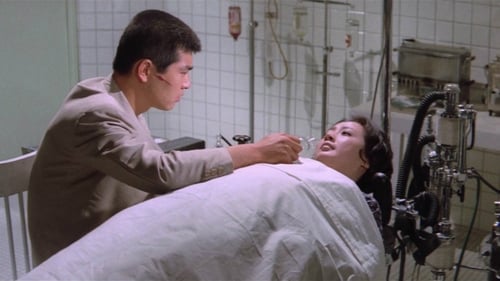
Goro Fujikawa (Tetsuya Watari) was indebted to Mitsugimoto. Sawada, a low rank yakuza with a gambling problem owed Mitsugimoto three million yen. This equation can only lead to one answer. Mitsugimoto needs to pay and Goro's coming to collect.
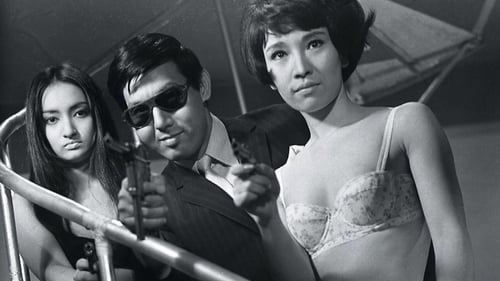
Ao fim de quase quarenta filmes como realizador em pouco mais de dez anos de trabalho, Seijun Suzuki foi despedido da Nikkatsu, lendária produtora japonesa. A causa, este "Koroshi no Rakuin", considerado pela crítica a sua obra prima, mas visto como incompreensível e inaceitável pelo presidente da companhia, Kyusaku Hori. O filme valeu-lhe um circense processo judicial pela luta dos direitos das suas obras. Ao fim de três anos de litígio, Suzuki, mais do que uma vitória merecida, conquistou o estatuto de cineasta de culto no Japão e um despertar das atenções a Ocidente. A década seguinte seria de exílio em trabalhos menores para a televisão.
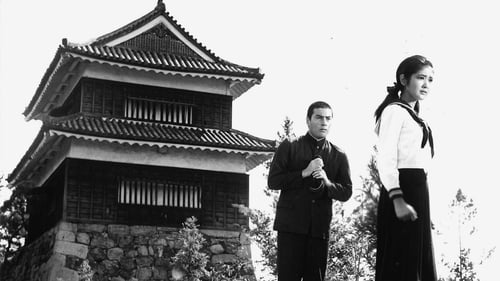
Kiroku boards with a Roman Catholic family and falls for the daughter Michiko. He ignores his feelings, joins a gang, gets in fights and, eventually, becomes involved with the radical Kita Ikki group.
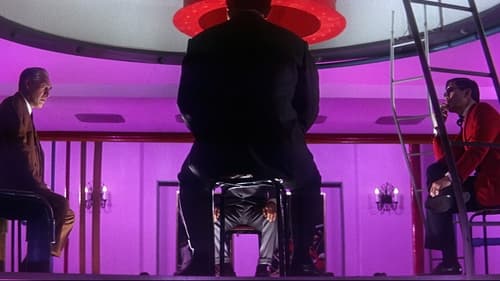
Braço direito a Yakusa resolve abandonar a carreira criminosa com seu chefe, mas uma gangue rival não deixará que isso aconteça tão facilmente.
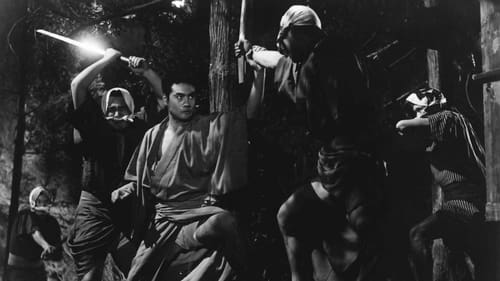
‘Tattooed Life' begins with a parasol wielding Yakuza assassin attacking a rickshaw. It almost looks like feudal Japan until somebody pulls a gun and we're reminded that it's the 20th century. Post-shooting, the assassin delivers his bounty to his brother (to pay for his art school education) before getting ambushed in one of the few rickshaw-jacking incidents in film history, and being rescued by his art-student brother. In the aftermath, one brother is marked for death by the Yakuza, and the other brother won't go to art school with blood on his hands, so they decide the perfect way to deal with such hardships is to become fugitive construction workers in northern Japan . And why not?

One summer day, the chief monk of the Hojuin Temple dies. Harumichi rushes back to town hearing about his brother's death and requests for a grand funeral. He had been unwilling to take over the family business and had chosen a life as a middle school teacher far away from home, but considering the circumstances, he changes his mind. As the new chief of Hojuin, Harumichi scrambles around day after day for donations. He has kept strictly to the straight and narrow, until he passes a bicycle race track where the sounds of cheering fans induce him into a new way of life...

The monologue and mysterious death of a man who survived and returned from Iwo Jima. A newspaper reporter writes an article about "The Man from Iwo Jima" asking the people who were close to him about his character and the painful memories off all those involved.








